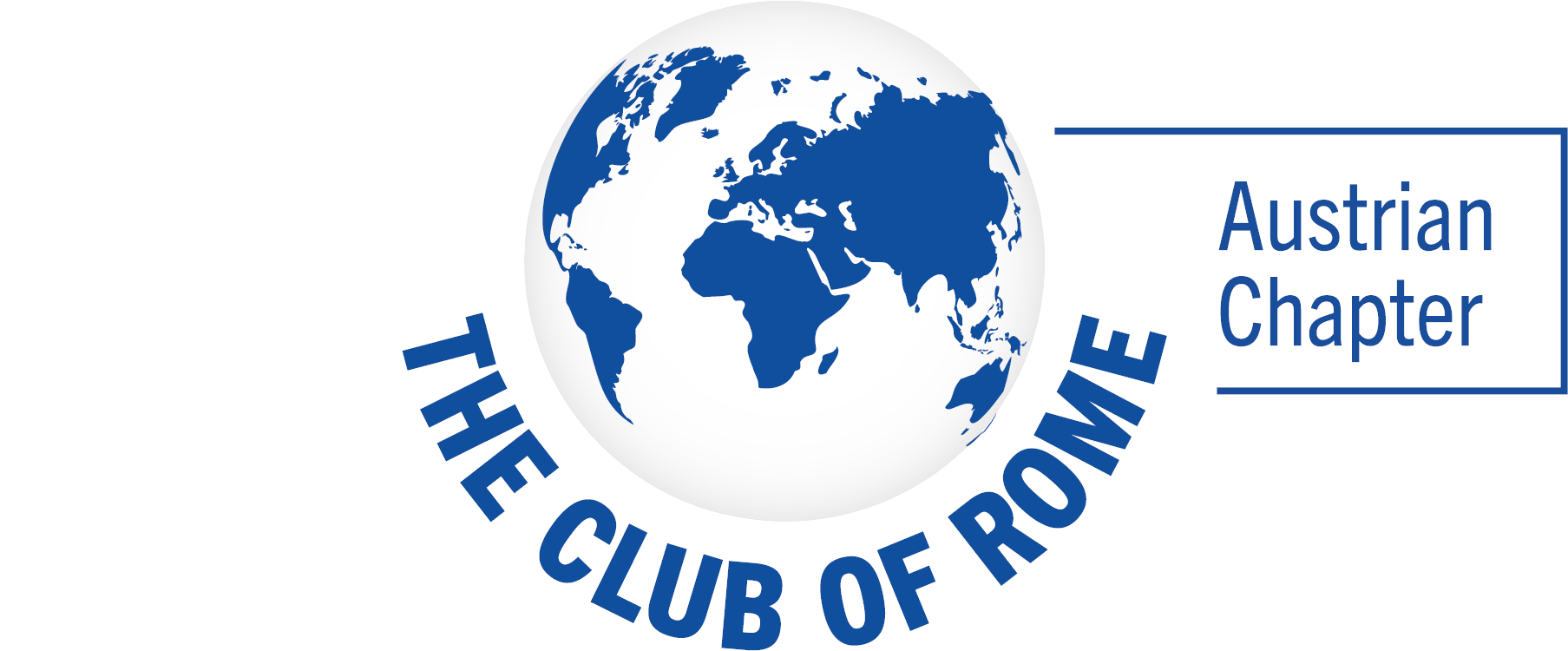Reflections by Ilse Kleinschuster (Member of the Club of Rome – Austrian Chapter)
When discussing climate protection and social justice, both private and global dimensions come into play. Since Austria has committed to the SDGs, the UN’s Sustainable Development Goals, we must ask the fundamental question: What is our global responsibility, and how does it relate to our personal freedoms?
Austria’s Commitment to the SDGs
Austria has made significant progress towards the SDGs. In the summer of 2024, the second “Voluntary National Review” on the implementation of the Sustainable Development Goals was presented in New York. Reportedly, it was hailed as “an admirable collaboration across Austrian governance and the world’s only report combining qualitative and quantitative measurements backed by statistical evidence” (SDG Science Summit – New York 2023). Austria ranked 6th in the UN Ranking – a result that can only be considered in an international context since, for example, Austria is still far from eradicating poverty. According to Statistics Austria, in 2023, 3.7% of Austria’s population still lived in poverty.
Furthermore, Austria performed poorly in the UN Spillover Ranking, particularly regarding SDG 12 (Responsible Consumption and Production) and SDG 13 (Climate Action). This poor performance can be attributed to high CO2 emissions, the acceptance of low labor standards along international supply chains, the high demand for raw materials (sourcing issues!), and the outsourcing of emission-intensive production processes. Thus, we must ask whether the Austrian economy sufficiently addresses the root causes of global humanitarian crises.
Economic Interests vs. Climate Protection: A Delicate Balance
Does the much-invoked Christian value tradition still play a role in economic policy? From a Christian values perspective, radical climate policy is necessary, as only through such policies can the Enlightenment values of freedom, equality, and solidarity be safeguarded in the long term. Today, the call for freedom is particularly loud in Europe.
I refer here to Bernward Gesang, a philosopher specializing in economic ethics at the University of Mannheim. He defines radical climate policy as one that operates within the framework of liberal democracies but gives clear priority to climate protection.
Currently, the priorities lie with economic interests, but incentives and regulations could change that. As understandable as fears of a loss of freedom may be, radical climate policy, which relies on regulatory prohibitions, must ultimately be seen as a means of safeguarding freedom. Future generations will only have the freedom to experience forests or rare animal species if they still exist. Radical climate and environmental policies can preserve freedom; without them, freedoms such as settling along coastlines or living healthily, free from pollution, will be lost. While prohibitions should be avoided when possible, as they naturally provoke resistance, they are sometimes necessary.
Transformation or Disaster: The Message from Earth4All
Gesang’s theses align with some ideas found on the website of Germany’s Federal Ministry for Economic Cooperation and Development (BMZ). Austria’s Federal Ministry for Climate Action, Environment, Energy, Mobility, Innovation, and Technology (BMK) also discusses strategies for a third industrial revolution, envisioning a society that generates and defines growth and prosperity on the basis of renewable energy (EES). Such a revolution would indeed be a true transformation into a sustainable future. But to achieve this, we must step out of our comfort zone and become more ecologically resilient. As conveyed by the global report Earth4All, we must initiate a transition “by design” today, or face a transition “by disaster” tomorrow.
We, the inhabitants of Earth, are in a planetary emergency, and the economic transformation requires active governments (Earth4All – Key Message). Therefore, these theses must be radicalized: not only will freedom—such as the freedom to live certain lifestyles—be preserved through committed climate policy, but freedom itself—in every form—could one day be owed to such policies. Gesang reminds us of the old saying, “You can’t eat money” – without an intact environment, there is no life, and without life, there is no freedom.
Freedom at Risk: A Call for Sustainable Decisions
Naturally, freedom must not come at the expense of others; it must not harm anyone, as the founders of liberalism proclaimed. However, we are pushing the limits of this principle with our lifestyles, especially when we consider future generations. Shouldn’t we fear that the restrictions will accumulate to the point where we lose the very essence of a free lifestyle? This fear is currently being exploited to favor short-term profit interests. The goal must be to ensure that not political freedoms (freedom of speech, assembly, voting rights) are threatened by regulation, but rather economic freedoms (freedom of consumption and production) are increasingly called into question.
In the end, we must ask ourselves: Do we want to secure freedom only for the present, or also for future generations? Climate change challenges us to take responsibility beyond our personal freedoms. It is up to us, through our choices, to set the course for a future where freedom and sustainability go hand in hand. By making bold decisions and stepping out of our comfort zones, we can create a world where freedom is not just a privilege of the present but a legacy for future generations. The key to this lies in a radical but necessary transformation of our economic and political systems – a transformation that does not take away freedom, but rather secures it for the future. Let us set the course now – for a world where freedom and sustainability are not contradictions, but together ensure a just future for all.
Entirely in the spirit of Earth4All (see Earth4All Austria and Wellbeing Economy).
